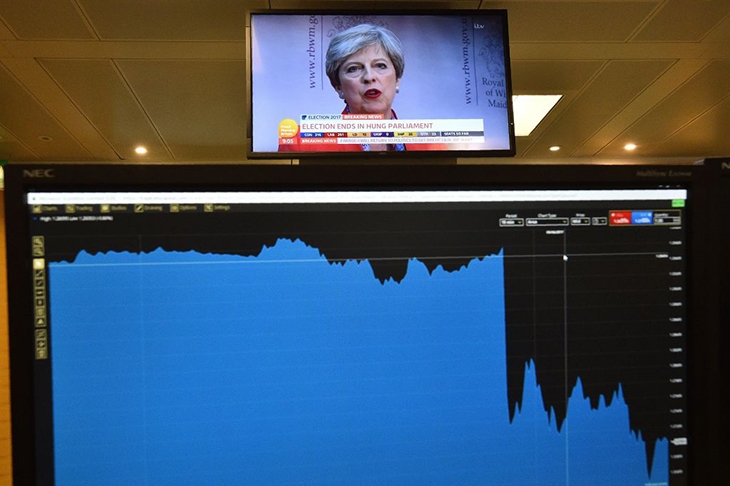Sterling plunges on the currency markets. Middle Eastern oil money flees London. A prime minister resigns in mysterious circumstances, and a government clings on to a vanishing majority. Sound familiar? In fact, it is a description of the run-up to the sterling crisis of 1976, which forced the then Labour government to crawl to the IMF for an emergency bailout. But the parallels with today are spooky.
As the catastrophic election result for the Conservative party is digested, sterling is already sinking like a stone. No one has any real idea who will be PM in a few months’ time, whether there will be another election, or who might win if a second vote is held. We are not about to repeat the traumatic experience of 1976; with a fully floating currency, it is unlikely we will have to ask the IMF for help. Even so, the election will create the most serious crisis for the British economy for 41 years.
Brexit was a perfectly plausible option. Businesses were adjusting to the fact that we were leaving the EU, and plenty of new investment was coming into the country. There was no need for it to be a disaster of the sort Project Fear predicted. Some companies would leave Britain if we weren’t in the EU, but others would come, and we would end up roughly where we were before, and possibly slightly richer.
But it needed to be a Brexit of a particular sort. To work, it had to be combined with a stable government, a quick and hard-headed negotiation with Brussels, and a pro-business agenda — which in practice means lower corporate taxes, flexible labour markets, and a commitment to free trade and deregulation. That way, the UK would still be an attractive place to invest, even if it was slightly harder to sell stuff to the Germans and the French.
Instead, the rise of Jeremy Corbyn, and his brand of populist, South American-style economics, means it looks as if the UK is turning towards a ‘hard-left Brexit’, with wild rises in state spending, nationalisation of key industries, a massive increase in minimum wages, and a huge extension of state controls. Why would global investors — on which the UK depends — be interested in that? They won’t get the single market. But they won’t get a free market either.
Just like 1976, the UK is at risk of a sudden collapse of financial confidence. If sterling keeps on crashing, if the negotiations with the EU go badly, if a minority Tory administration is split by infighting, and Corbyn’s Labour keeps rising in the polls, then foreign investors will decide that Britain is simply too chaotic to be worth bothering with any more. The UK may yet pull through. But the chances of a catastrophic Brexit — and a hard crash for the economy — have just dramatically increased.






Comments